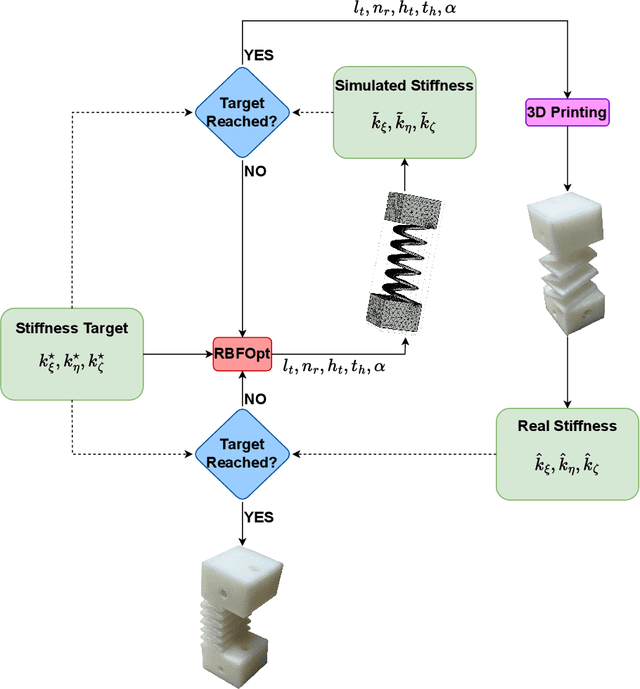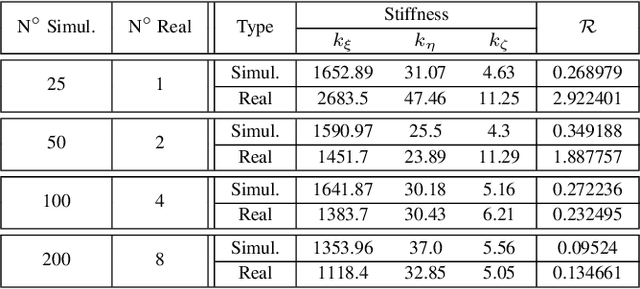Pierluigi Mansueto
Optimization-Driven Design of Monolithic Soft-Rigid Grippers
Dec 10, 2024



Abstract:Sim-to-real transfer remains a significant challenge in soft robotics due to the unpredictability introduced by common manufacturing processes such as 3D printing and molding. These processes often result in deviations from simulated designs, requiring multiple prototypes before achieving a functional system. In this study, we propose a novel methodology to address these limitations by combining advanced rapid prototyping techniques and an efficient optimization strategy. Firstly, we employ rapid prototyping methods typically used for rigid structures, leveraging their precision to fabricate compliant components with reduced manufacturing errors. Secondly, our optimization framework minimizes the need for extensive prototyping, significantly reducing the iterative design process. The methodology enables the identification of stiffness parameters that are more practical and achievable within current manufacturing capabilities. The proposed approach demonstrates a substantial improvement in the efficiency of prototype development while maintaining the desired performance characteristics. This work represents a step forward in bridging the sim-to-real gap in soft robotics, paving the way towards a faster and more reliable deployment of soft robotic systems.
Memetic Differential Evolution Methods for Semi-Supervised Clustering
Mar 07, 2024Abstract:In this paper, we deal with semi-supervised Minimum Sum-of-Squares Clustering (MSSC) problems where background knowledge is given in the form of instance-level constraints. In particular, we take into account "must-link" and "cannot-link" constraints, each of which indicates if two dataset points should be associated to the same or to a different cluster. The presence of such constraints makes the problem at least as hard as its unsupervised version: it is no more true that each point is associated to its nearest cluster center, thus requiring some modifications in crucial operations, such as the assignment step. In this scenario, we propose a novel memetic strategy based on the Differential Evolution paradigm, directly extending a state-of-the-art framework recently proposed in the unsupervised clustering literature. As far as we know, our contribution represents the first attempt to define a memetic methodology designed to generate a (hopefully) optimal feasible solution for the semi-supervised MSSC problem. The proposal is compared with some state-of-the-art algorithms from the literature on a set of well-known datasets, highlighting its effectiveness and efficiency in finding good quality clustering solutions.
 Add to Chrome
Add to Chrome Add to Firefox
Add to Firefox Add to Edge
Add to Edge